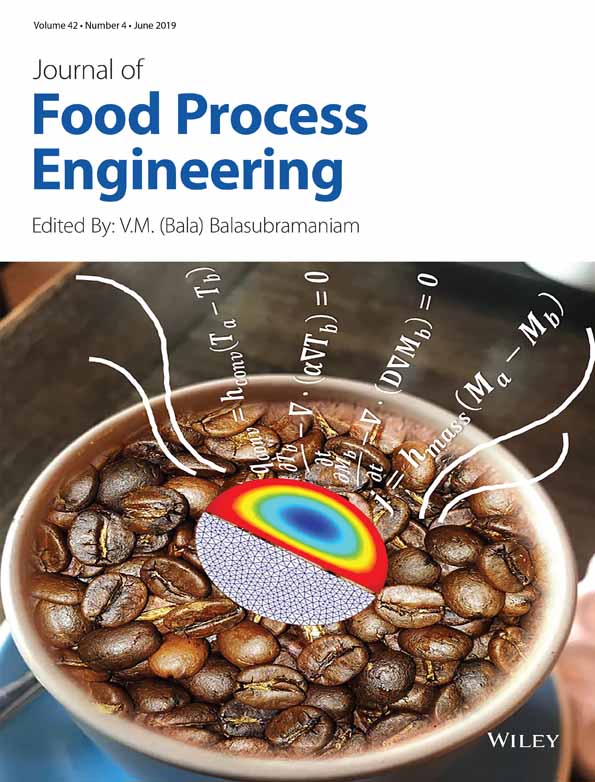The effect of spray drying conditions on physicochemical properties of encapsulated propolis powder
Abstract
Herein we investigated the effects of homogenization rate, inlet, and outlet air temperatures on physical (moisture content, water activity, glass transition temperature, particle and bulk density, wettability, solubility, and color) and chemical (total and surface phenolic content, antioxidant activity and encapsulation efficiency) properties of spray dried encapsulated propolis. The moisture content of encapsulated propolis powder was ranged from 4.26 to 6.17% while, the water activity values of these were changed between 0.197 and 0.269. The moisture content and water activity of products was an upward tendency with increasing inlet air temperature and decreasing outlet air temperature. An increase in inlet air temperature and decrease in outlet air temperature led to an increase in the glass transition temperature which changed in range of 44.50 to 51.45°C. While the wettability time of encapsulated propolis powder was longer than 100 s, their solubility ranged from 82 to 95%. Propolis powder produced at high inlet and outlet air temperatures and low homogenization rate had higher antioxidant activity, total, and surface phenolic content. Encapsulation efficiency calculated based on total/surface phenolic content varied widely between 29.79 and 99.73%. Encapsulation efficiency results clearly demonstrated that the conditions of process variables were effective on the encapsulation process.
Practical Applications
Propolis is one of the valuable bee products due to its high phenolic content and antioxidant activity. In the current market, propolis is mostly presented as a food supplement in the form of liquid extract. Although the importance of propolis has been recognized by the food industry and consumers, the usage of propolis has been limited due to its bitter and unpleasant taste. Another limitation of propolis usage in food products is environmental factors and food process conditions due to easily loss of its antioxidant activity and phenolic compounds. Encapsulation technology could provide overcome these challenges and improve the usability and durability of propolis in food products as an ingredient. However, the success of an encapsulation process considerably depends on process conditions. Therefore the effects of the encapsulation process conditions of spray drying method on physicochemical properties of encapsulated propolis powder were investigated in this study.




